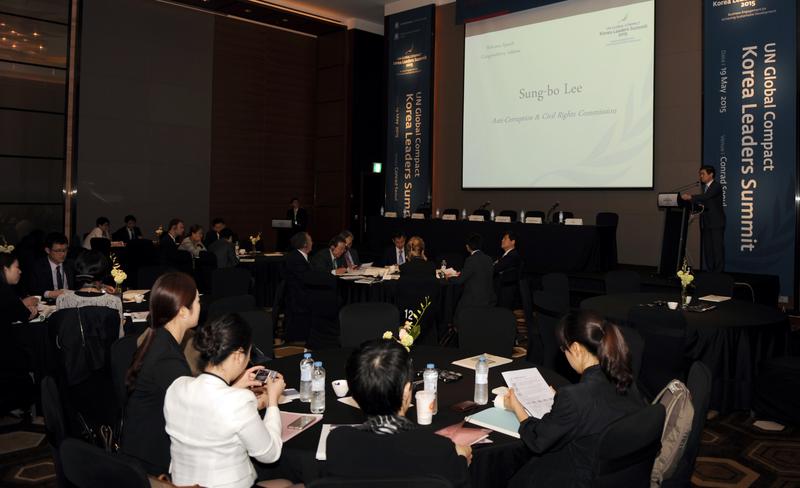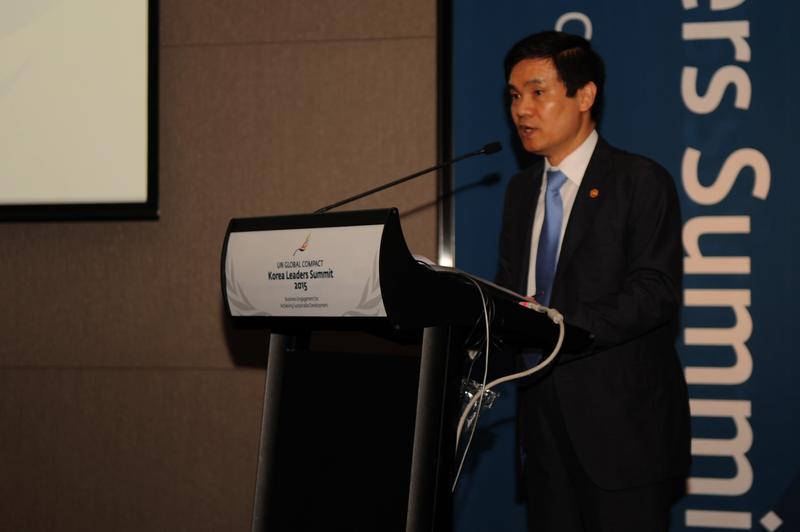News & Publications
Press Release
ACRC discussed ethical business practices at international summit
- Date2015-05-19
- Hit2,497
 |  |
The ACRC introduced the Korean government's anti-corruption policies and discussed ways to support companies for their efforts to promote business ethics at the UN Global Compact Korea Leaders Summit, co-hosted by the UN Global Compact Headquarters and the Global Compact Network Korea on May 19th in Seoul.
The Summit was organized to improve awareness about business engagement in addressing the issues related to corporate social responsibility and achieving sustainable development, gathering leaders in governments, businesses, academia, and the UN from home and abroad.
* The UN Global Compact is a global corporate sustainability initiative to encourage businesses to take shared responsibility by aligning their strategies and operations with ten principles on human rights, labor, environment, and anti-corruption.
At the Summit, Ban Ki-moon, Secretary-General of the UN; Susilo Bambang Yudhoyono, Assembly President of the Global Green Growth Institute; and Jeffrey Sachs, UN Secretary-General's special advisor on the Millennium Development Goals (MDGs) appeared as keynote and main speakers.
During the Summit, the ACRC hosted the Anti-Corruption Session, which discussed the roles that stakeholders such as government, civil society, and academia can play to support business efforts to reduce corruption.
In his welcoming speech, ACRC Chairman Lee Sungbo said, "This Summit is an occasion to collect expert opinions about strategies to respond to the ever-growing international efforts to fight corruption, as well as to effectively support ethical business practices."
Mark Pieth, Professor at Basel University, highlighted in his keynote speech that civil society, the private sector, and government must make joint efforts in order to eradicate corruption.
Sabine Zindera, Vice President at Siemens AG in Corporate Legal and Compliance, argued that if businesses, NGOs, and government join hands to create a fair, transparent business environment, it could contribute to the long-term growth of businesses.
In the panel discussion, Kwak Hyung-sok, Director General of the ACRC's Anti-Corruption Bureau, introduced Korea's anti-corruption laws, including the Improper Solicitation and Graft Act, the Act on the Protection of Public Interest Whistleblowers, and the Bill on the Prevention of False Claims of Public Funds. Director General Kwak also stated that it is necessary for businesses to actively put into practice anti-corruption and ethical management as a core value of their social responsibility.
The ACRC expected that while the global community is intensifying efforts to promote business ethics in the private sector, the Summit would be an opportunity to stimulate interest and support for ethical management and contribute to enhancing corporate competitiveness.









